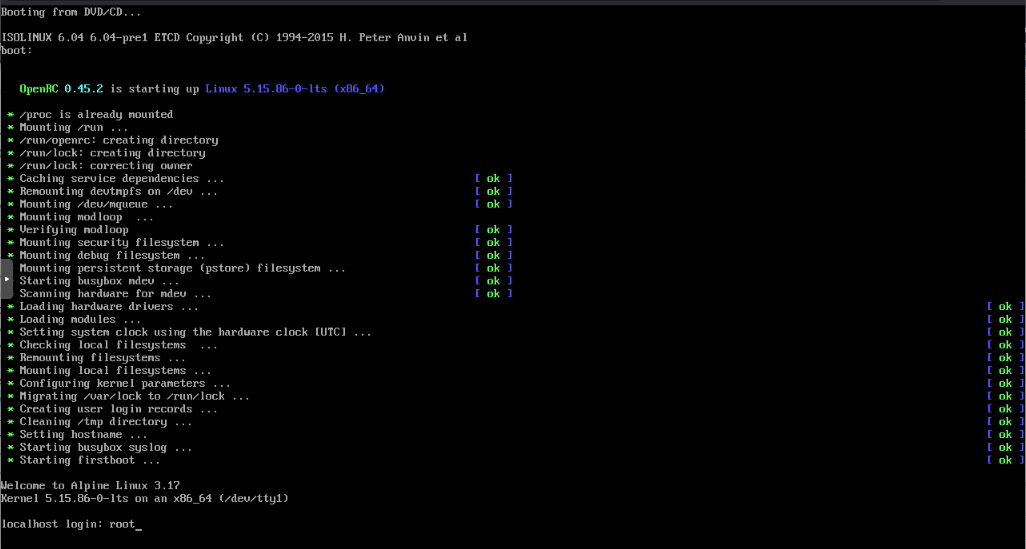Why Alpine Linux
Alpine Linux is a lightweight, security-focused, rolling release distribution with a fast and efficient package manager. It is highly customizable and compatible with a wide range of hardware architectures, making it suitable for use in a variety of environments.
Preparation
- Download the Alpine Linux ISO image file from the official website: https://alpinelinux.org/downloads/
- Write the ISO image file to a USB drive using a tool such as Rufus or Etcher.
- Insert the USB drive into your computer and boot from it. This can usually be done by pressing a key (such as F12 or Del) during the startup process to enter the boot menu, then selecting the USB drive as the boot device.

Procedure of Install

Once Alpine Linux has booted, you will see a command-line interface. Type the login name “root” and press Enter.
Setup the system with command “setup-alpine”.

Follow the prompts to select the keyboard layout (or press enter to select none), and type system hostname (e.g. alpine)
Constantly choosing default settings, such as interface eth0, using DHCP to ask for an IP address.

Enter it twice to change the root password, and select the appropriate time zone for your location or enter it manually (e.g. Asia/Hong_Kong).

Choose the fastest repository (e.g. 1)

Type a username or press enter to choose no.

Select openssh as ssh server.

Next, prompt to select Available disks. Enter a disk name (such as sda) to use for installing the system.
Enter the name sys as the base system then type y to confirm erasing the disk and starting the formatting and base system installation process.
Finally, you will be prompted to reboot the system. Remove the USB drive and type reboot to restart the system.
